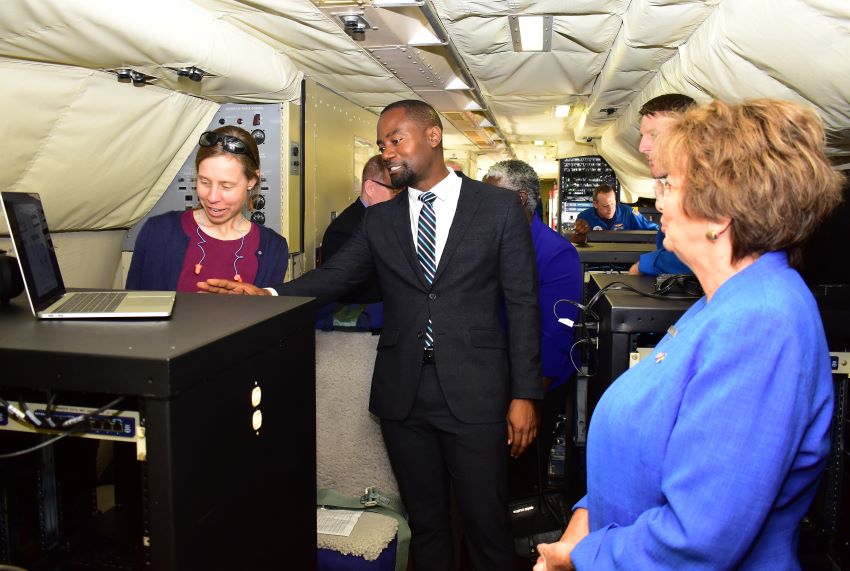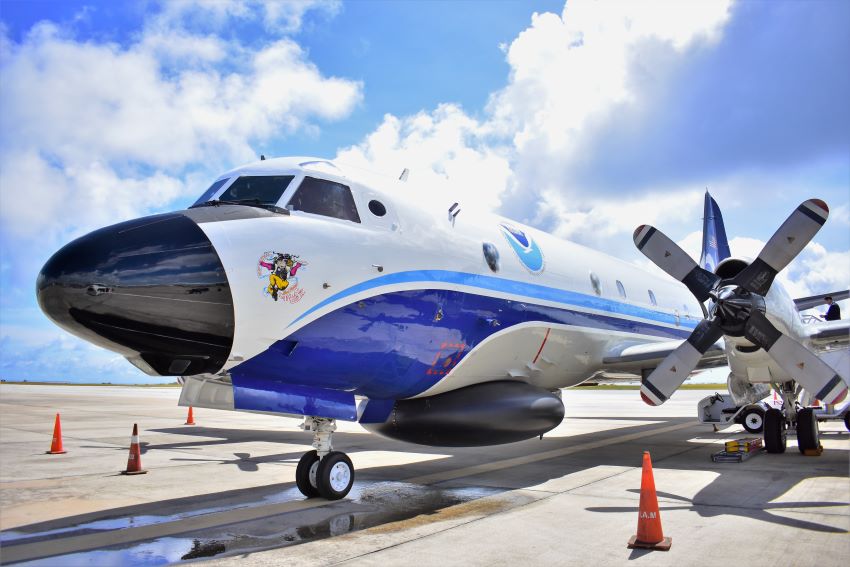
Science will be a key driver in helping persons to understand exactly what the blue economy is, its benefits, and threats to its continued survival.
It is with this in mind that Minister of Maritime Affairs and the Blue Economy, Kirk Humphrey, has welcomed experts from the National Oceanic and Atmospheric Administration (NOAA), who will be conducting research in Barbados over the coming weeks, which will help in these areas.
A team from NOAA’s Atlantic Tradewind Ocean Atmosphere Mesoscale International Campaign (ATOMIC) is currently investigating how the ocean and atmosphere work together to create weather and climate, and will remain on island until mid-February.
It is envisaged that the research would put the Caribbean in a better position to prepare for natural disasters during the hurricane season, and would give a better understanding of the blue economy.
“I am hoping the science will help us to understand the blue economy. The blue economy is about our capacity to live in a world and preserve the world we live in. It is about how we are able to protect our marine space. It is about making the most of it while not over exploiting it,” Mr. Humphrey said.
He added that science must become the basis on which decisions are made, and that it must drive Barbados and the other Caribbean nations to be able to have information that allows persons to live in a world that is sustainable.
The Minister highlighted fisheries management, weather modelling and shipping as some of the priority areas for his Ministry going forward, as it continues to roll out the blue economy.
“We are in the process of devising a fisheries legislation, and we presently have a draft Fisheries Policy,” Mr. Humphrey said, noting that he was also committed to establishing marine managed areas across the country.
But, he noted, that not everyone was pleased with the way in which Government wanted to go, as it relates to fisheries management and marine protected areas. “I want to do it right and with minimal pain. I am committed to doing it,” Mr. Humphrey stated.
The Minister said he wanted to continue working with the United States to build out “a sensible blue economy that would generate revenue and create employment”.
This would include exploring possibilities for coral regeneration, an area presently under the Ministry’s purview. He explained that corals protect Barbados’ coastline from the impact of natural disasters and aids in this island’s capacity to respond to natural disasters.

Assistant Secretary of Commerce for Oceans and Atmosphere and Deputy NOAA Administrator, Rear Admiral US Navy (retired), Dr. Tim Gallaudet, also noted that one of NOAA’s top priorities was advancing the blue economy.
“It involves advancing the sustainable economic contribution of our oceans and coasts. That is what the blue economy is. It involves promoting tourism; it also involves sustainable fisheries; it involves promoting a safe marine transportation as well as coastal resilience,” Dr. Gallaudet said.
He added that there was also a detailed fishery management process, which was governed by a Fisheries Council. He explained that the council was tasked with surveying the fish and conducting assessments to see if they were healthy, and to determine if they could be fished or not.
Dr. Gallaudet added that the beginning of the process was science based, which also saw “catch fish” limits being established to allow various species to rebound.
“At present, about 91 per cent of our fish stocks are not overfished,” he said, while pledging that NOAA would assist Government through study tours and other initiatives.
US Ambassador, Linda Taglialatela, said the ATOMIC project was part of the broader EUREKA field campaign in the Caribbean, which was a scientific collaboration between the United States, the United Kingdom and France.
She noted that NOAA’s collaboration with Caribbean partners extended beyond storm and weather forecasting.
“The Coral Reef Conservation Programme provides funding and technical assistance to US domestic and international partners, to catalyse coral reef stewardship, and assemble expertise to provide a multidisciplinary approach to understand and manage coral reef ecosystems and address top coral reef threats,” the Ambassador said.
